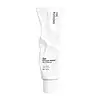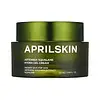What's inside
What's inside
 Key Ingredients
Key Ingredients

 Benefits
Benefits

 Ingredients Side-by-side
Ingredients Side-by-side

Water
Skin ConditioningMethylpropanediol
SolventPropylheptyl Caprylate
Emollient1,2-Hexanediol
Skin ConditioningPolyglyceryl-6 Distearate
EmulsifyingLaminaria Japonica Extract
Skin ProtectingEclipta Prostrata Leaf Extract
Skin ConditioningCentella Asiatica Extract
CleansingFicus Carica Fruit Extract
HumectantAcmella Oleracea Extract
Skin ProtectingHydrogenated Lecithin
EmulsifyingAmmonium Acryloyldimethyltaurate/Vp Copolymer
Jojoba Esters
EmollientXanthan Gum
EmulsifyingCetyl Alcohol
EmollientPolyglyceryl-3 Beeswax
EmulsifyingFructooligosaccharides
HumectantBeta-Glucan
Skin ConditioningButylene Glycol
HumectantPanthenol
Skin ConditioningHydrolyzed Hyaluronic Acid
HumectantRaffinose
Skin ConditioningFolic Acid
Skin ConditioningCeramide NP
Skin ConditioningCholesterol
EmollientTromethamine
BufferingPalmitoyl Pentapeptide-4
Skin ConditioningEthylhexylglycerin
Skin ConditioningWater, Methylpropanediol, Propylheptyl Caprylate, 1,2-Hexanediol, Polyglyceryl-6 Distearate, Laminaria Japonica Extract, Eclipta Prostrata Leaf Extract, Centella Asiatica Extract, Ficus Carica Fruit Extract, Acmella Oleracea Extract, Hydrogenated Lecithin, Ammonium Acryloyldimethyltaurate/Vp Copolymer, Jojoba Esters, Xanthan Gum, Cetyl Alcohol, Polyglyceryl-3 Beeswax, Fructooligosaccharides, Beta-Glucan, Butylene Glycol, Panthenol, Hydrolyzed Hyaluronic Acid, Raffinose, Folic Acid, Ceramide NP, Cholesterol, Tromethamine, Palmitoyl Pentapeptide-4, Ethylhexylglycerin
Artemisia Vulgaris Extract 80%
Skin ConditioningWater
Skin ConditioningSqualane 3%
EmollientMethylpropanediol
SolventGlycerin
Humectant1,2-Hexanediol
Skin ConditioningCoco-Caprylate/Caprate
EmollientSaccharide Hydrolysate
HumectantCetearyl Olivate
Ammonium Acryloyldimethyltaurate/Vp Copolymer
Niacinamide
SmoothingSorbitan Olivate
EmulsifyingButylene Glycol
HumectantTrehalose
HumectantEthylhexylglycerin
Skin ConditioningDipotassium Glycyrrhizate
HumectantAllantoin
Skin ConditioningOryza Sativa Bran Extract
Skin ConditioningCarbomer
Emulsion StabilisingXanthan Gum
EmulsifyingFructooligosaccharides
HumectantTromethamine
BufferingAdenosine
Skin ConditioningPullulan
Saccharum Officinarum Extract
MoisturisingSodium Hyaluronate
HumectantIndigofera Tinctoria Extract
MaskingHyaluronic Acid
HumectantMoringa Oleifera Seed Oil
EmollientSodium Hyaluronate Crosspolymer
HumectantHydrolyzed Sodium Hyaluronate
Skin ConditioningHydrolyzed Hyaluronic Acid
HumectantHemerocallis Fulva Flower Extract
Skin ConditioningCeramide NP
Skin ConditioningMyosotis Sylvatica Flower/Leaf/Stem Extract
Skin ConditioningPhytosphingosine
Skin ConditioningSodium Acetylated Hyaluronate
HumectantHydroxypropyltrimonium Hyaluronate
Hydrogenated Lecithin
EmulsifyingCI 75810
Cosmetic ColorantArtemisia Vulgaris Extract 80%, Water, Squalane 3%, Methylpropanediol, Glycerin, 1,2-Hexanediol, Coco-Caprylate/Caprate, Saccharide Hydrolysate, Cetearyl Olivate, Ammonium Acryloyldimethyltaurate/Vp Copolymer, Niacinamide, Sorbitan Olivate, Butylene Glycol, Trehalose, Ethylhexylglycerin, Dipotassium Glycyrrhizate, Allantoin, Oryza Sativa Bran Extract, Carbomer, Xanthan Gum, Fructooligosaccharides, Tromethamine, Adenosine, Pullulan, Saccharum Officinarum Extract, Sodium Hyaluronate, Indigofera Tinctoria Extract, Hyaluronic Acid, Moringa Oleifera Seed Oil, Sodium Hyaluronate Crosspolymer, Hydrolyzed Sodium Hyaluronate, Hydrolyzed Hyaluronic Acid, Hemerocallis Fulva Flower Extract, Ceramide NP, Myosotis Sylvatica Flower/Leaf/Stem Extract, Phytosphingosine, Sodium Acetylated Hyaluronate, Hydroxypropyltrimonium Hyaluronate, Hydrogenated Lecithin, CI 75810
Ingredients Explained
These ingredients are found in both products.
Ingredients higher up in an ingredient list are typically present in a larger amount.
1,2-Hexanediol is a synthetic liquid and another multi-functional powerhouse.
It is a:
- Humectant, drawing moisture into the skin
- Emollient, helping to soften skin
- Solvent, dispersing and stabilizing formulas
- Preservative booster, enhancing the antimicrobial activity of other preservatives
Ammonium Acryloyldimethyltaurate/Vp Copolymer (let's call it AAVC for short) is a synthetically created polymer. It's used as a film-forming agent and used to thicken the consistency of products.
AAVC is able to increase the consistency and viscosity of products due to its large molecule size. It also prevents ingredients from separating.
Butylene Glycol (or BG) is used within cosmetic products for a few different reasons:
Overall, Butylene Glycol is a safe and well-rounded ingredient that works well with other ingredients.
Though this ingredient works well with most skin types, some people with sensitive skin may experience a reaction such as allergic rashes, closed comedones, or itchiness.
Learn more about Butylene GlycolCeramide NP is a type of ceramide and formally known as ceramide 3.
Ceramides are intercellular lipids naturally found in our skin that bonds dead skin cells together to create a barrier. They are known for their ability to hold water and thus are a great ingredient for dry skin.
Ceramides are an important building block for our skin barrier. A stronger barrier helps the skin look more firm and hydrated. By bolstering the skin ceramides act as a barrier against irritating ingredients. This can help with inflammation as well.
If you would like to eat ceramides, sweet potatoes contain a small amount.
Read more about other common types of ceramides here:
Ceramide AP
Ceramide EOP
Ethylhexylglycerin (we can't pronounce this either) is commonly used as a preservative and skin softener. It is derived from glyceryl.
You might see Ethylhexylglycerin often paired with other preservatives such as phenoxyethanol. Ethylhexylglycerin has been found to increase the effectiveness of these other preservatives.
Fructooligosaccharides is an alternative sweetener. It is often derived from the blue agave plant.
This ingredient is a prebiotic and helps to hydrate the skin. Emerging studies are also showing fructooligosaccharides to have antioxidant properties.
As a humectant, Fructooligosaccharides helps draw moisture to the skin, helping to hydrate the skin.
Bananas, onions, garlic, asparagus, jícama, and leeks also contain fructooligosaccharides.
Learn more about FructooligosaccharidesHydrogenated Lecithin is created from the hydrogenation of lecithin (a group of phospholipids). Hydrogenation is a chemical reaction between hydrogen and another element.
This ingredient is an emollient and emulsifier. As an emollient, it helps soften skin by trapping moisture within. As an emulsifier, it prevents oil and water ingredients from separating.
Hydrolyzed Hyaluronic Acid is a form of hyaluronic acid. It is created by the hydrolysis of hyaluronic acid with a high molecular weight. Once created, Hydrolyzed Hyaluronic Acid has a low molecular weight.
Low molecular weight HA has been shown to hydrate and increase elasticity of the skin. Increasing elasticity is also associated with reduction of wrinkle depth.
One study found topical low molecular weight hyaluronic acid may be considered for the treatment of rosacea in the adult population. However, we always recommend speaking with a professional about your skin concerns.
Hyaluronic acids are a humectant. This means they draw moisture from the air. Hyaluronic acids help moisturize, soothe, and protect the skin.
Read more about other common forms of hyaluronic acid:
Learn more about Hydrolyzed Hyaluronic AcidMethylpropanediol is a synthetic solvent and humectant.
As a solvent, it helps dissolve other ingredients, helping to evenly distribute ingredients throughout the product. This ingredient has also been shown to have antimicrobial properties which makes it a preservative booster.
Methylpropanediol is able to add a bit of moisture to the skin. It also helps other ingredients be better absorbed into the skin, such as salicylic acid.
Learn more about MethylpropanediolTromethamine helps balance the pH and improve the texture of a product. It is synthetically created.
As an emulsifier, Tromethamine prevents oil and water ingredients from separating. This helps stabilize the product and elongate a product's shelf life. Tromethamine also makes a product thicker.
Tromethamine helps balance the pH level of a product. Normal pH level of skin is slightly acidic (~4.75-5.5). The acidity of our skin is maintained by our glands and skin biome. Being slightly acidic allows our skin to create an "acid mantle". This acid mantle is a thin barrier that protects our skin from bacteria and contaminants.
Oral Tromethanmine is an anti-inflammatory drug but plays the role of masking, adding fragrance, and/or balancing pH in skincare.
1,3-Propanediol, 2-amino-2-(hydroxymethyl)-
Learn more about TromethamineWater. It's the most common cosmetic ingredient of all. You'll usually see it at the top of ingredient lists, meaning that it makes up the largest part of the product.
So why is it so popular? Water most often acts as a solvent - this means that it helps dissolve other ingredients into the formulation.
You'll also recognize water as that liquid we all need to stay alive. If you see this, drink a glass of water. Stay hydrated!
Learn more about WaterXanthan gum is used as a stabilizer and thickener within cosmetic products. It helps give products a sticky, thick feeling - preventing them from being too runny.
On the technical side of things, xanthan gum is a polysaccharide - a combination consisting of multiple sugar molecules bonded together.
Xanthan gum is a pretty common and great ingredient. It is a natural, non-toxic, non-irritating ingredient that is also commonly used in food products.
Learn more about Xanthan Gum